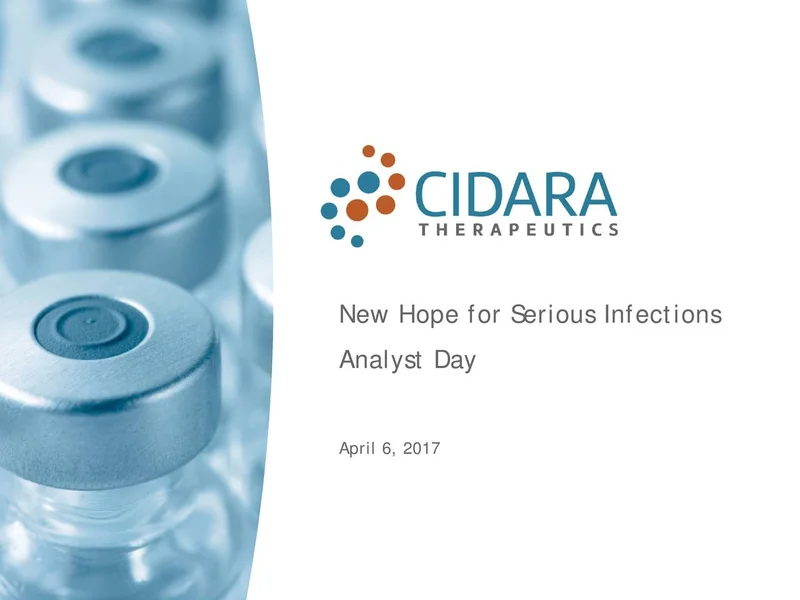From Red Ink to Green Shoots: How Biotech's Bouncing Back
Okay, folks, buckle up, because Friday's stock market was a rollercoaster, no doubt about it. We saw the Dow take a nosedive, a real gut-punch for some investors. But amidst all that red, there were these incredible green shoots popping up, especially in the biotech sector. And honestly, that's where my attention's laser-focused, because what's happening there? It's not just about money; it's about the future of us.
Take Legence Corp, for example (NASDAQ:LGN). They just dropped their first earnings report since going public, and while it was a mixed bag – revenue up, earnings a bit short – the market loved it. Shares jumped over 10%! Why? Because they're growing, innovating, and pushing forward, and that's what gets investors excited. It's like planting a seed: you might not see the tree overnight, but you believe it's going to grow.
But the real story, the one that made me sit up straight in my chair, is Cidara Therapeutics (NASDAQ:CDTX). Their shares? They didn't just jump; they skyrocketed over 100%! Why? Because Merck, yes that Merck, is buying them for a cool $9.2 billion. That's not just a good day at the office; that's a game-changer. Merck to buy Cidara, maker of a flu prevention drug, for $9.2B That's not just a good day at the office; that's a game-changer.
Merck's paying $221.50 a share—more than double Cidara's previous closing price. Think about that for a second. What does Merck see in Cidara? They see the future. Cidara is developing a universal flu treatment, something that could protect everyone, especially those who don’t respond well to traditional vaccines. We're talking about the elderly, people with compromised immune systems... this could be huge!
Now, some might say, “Well, Merck's just trying to fill the gap when Keytruda's patent expires.” And sure, that's part of it. But it's more than that. It's about investing in innovation, in solutions that will make a real difference in people's lives. And that, my friends, is what truly excites me.
And Cidara wasn't alone! Invivyd, Scholar Rock, Avadel Pharmaceuticals, Ondas Holdings, Omeros, Figure Technology Solutions, Beyond Meat (yes, even Beyond Meat!), RLX Technology, PomDoctor, and Cytek Biosciences all saw gains. It's like a rising tide lifting all ships. What's driving this? A few things, I think. Some companies, like Ondas, reported better-than-expected results and raised their guidance. Others, like Scholar Rock, announced equity offerings, signaling confidence in their future. Avadel received an unsolicited proposal from Lundbeck, which is always a good sign.
But it's more than just individual company news. It's a shift in sentiment, a belief that biotech is poised for a comeback. After a few tough years, investors are starting to see the potential again. They're seeing the breakthroughs, the innovations, the potential to change the world.

This reminds me of the early days of the internet. Remember when people thought it was just a fad? Remember when they couldn't see how it would transform our lives? Well, biotech is at that same point, I believe. We're on the cusp of a revolution, a revolution that will transform healthcare, extend lifespans, and improve the quality of life for billions of people.
Of course, with great power comes great responsibility. We need to ensure that these technologies are used ethically and responsibly, that they're accessible to everyone, not just the wealthy. But I'm optimistic. I believe that we can harness the power of biotech for the good of humanity.
The Ethical Tightrope of Biotech
Now, I know what some of you are thinking: "Dr. Thorne, you're always so optimistic! What about the risks? What about the potential downsides?" And you're right to ask those questions. Biotech is a powerful tool, and like any tool, it can be used for good or for ill. We need to be mindful of the ethical implications of our work, to ensure that we're not creating new problems while solving old ones.
For example, with gene editing technologies like CRISPR, we have the potential to cure genetic diseases. But we also have the potential to create designer babies, to enhance human traits in ways that could exacerbate inequality. Where do we draw the line? How do we ensure that these technologies are used fairly and equitably?
These are tough questions, and there are no easy answers. But I believe that we can find a way forward, a way to harness the power of biotech while mitigating the risks. It starts with open and honest dialogue, with involving all stakeholders in the conversation. It requires us to be thoughtful, deliberate, and always mindful of the potential consequences of our actions. And it requires you, the public, to stay informed and engaged.
Biotech: The Future is Being Written Now
What does this all mean? It means that the future is closer than we think. It means that the breakthroughs we've been dreaming about are starting to become a reality. It means that we have the power to change the world, to create a better future for ourselves and for generations to come. And that, my friends, is something to be incredibly excited about.
